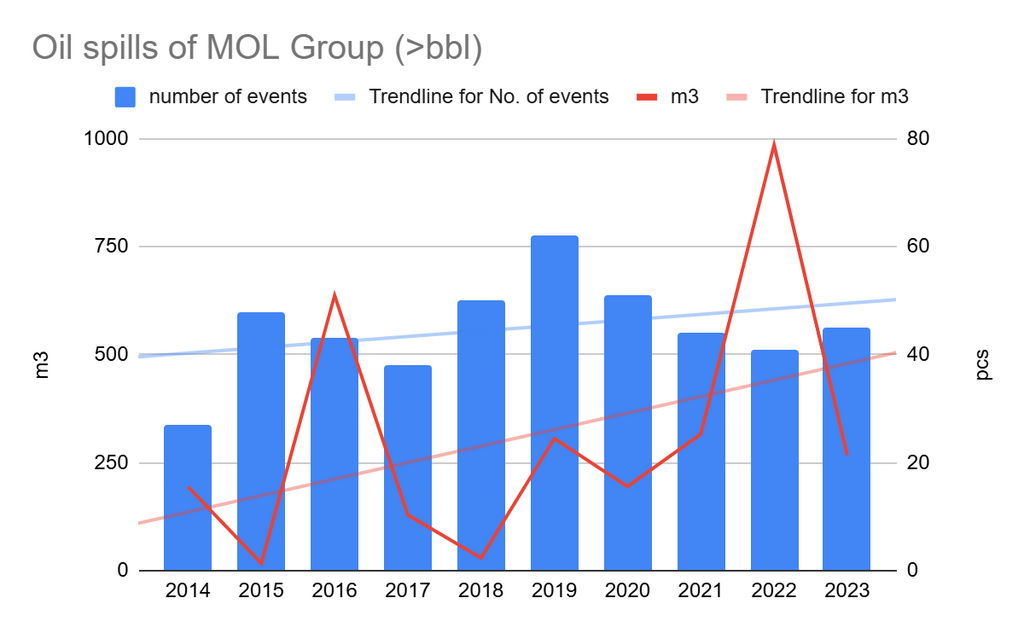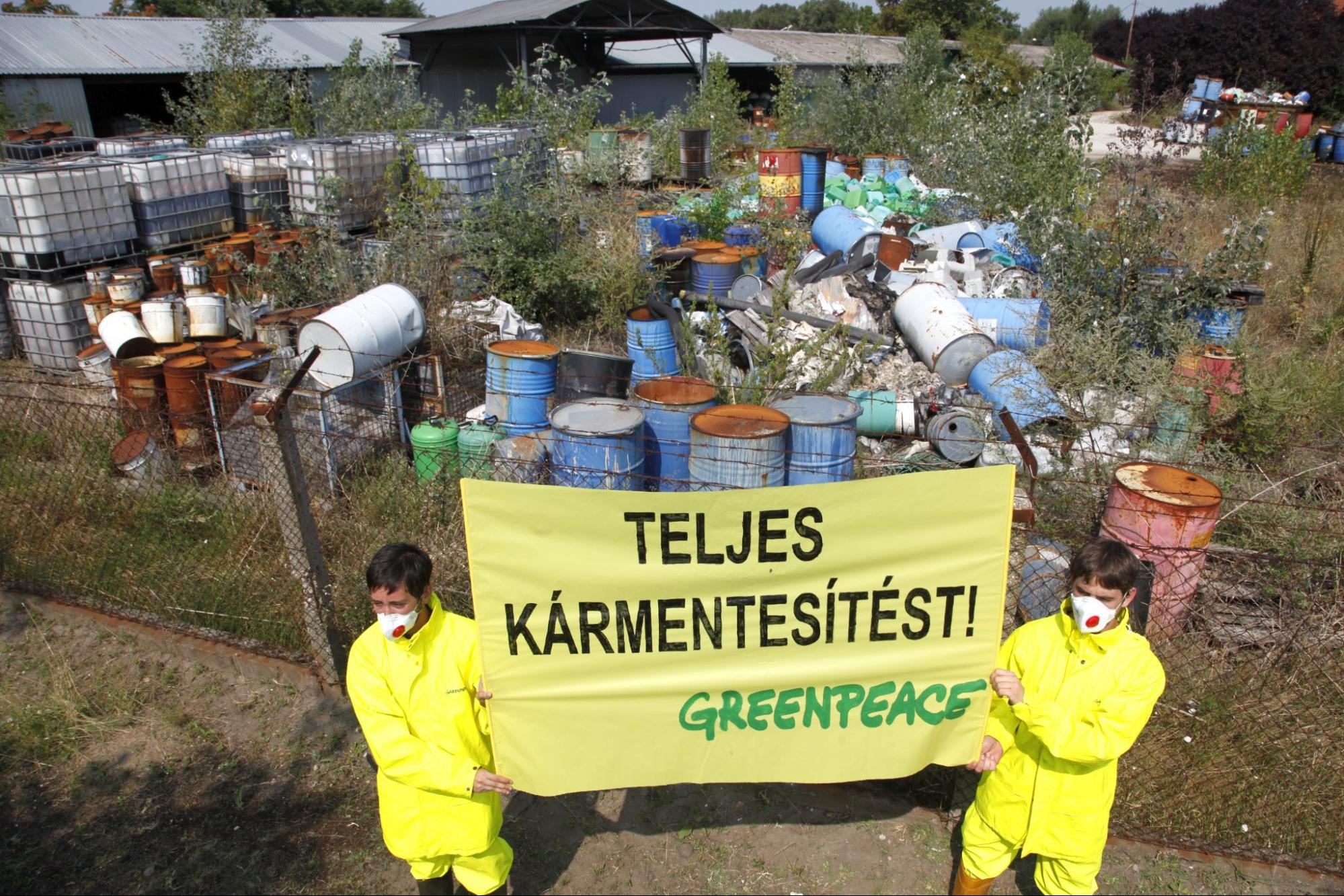Hungarian energy giant MOL has recently faced significant environmental challenges with two oil pipeline spills. Near the towns of Kiskunmajsa and Gárdony, substantial fuel leaks have been detected, revealing systemic infrastructure problems. The Gárdony incident involved a spillage of 487 m³ of diesel and petrol as confirmed by MOL, initially underreported as only 10 m³. Greenpeace believes that reporting the release of only 10 m³ of fuel into the environment to the authorities, while being aware of a significantly larger fuel shortage, may have resulted in slower reactions and less effective response measures. The contamination in the water of a resident’s well right next to the accident exceeds the groundwater limits for benzene and petroleum hydrocarbons. The pollution can also be detected in lower concentrations in nearby wells.
It took nearly a month and a half for MOL to locate the leak, and they could find it at least partially just by accident, through suspicion of theft rather than a leakage. It raises the question whether MOL’s inspection to find the leak was carried out following the right protocol, whether the necessary resources were assured, or whether the protocols are obsolete. Greenpeace and local environmental groups have criticised MOL’s slow response, lack of transparency, gaps in communication to local residents and inadequate infrastructure maintenance. The green group demands a comprehensive clean-up, full disclosure of pollution data and immediate compensation to local residents. It is also concerning that locals are living with a constantly unpleasant fuel smell, yet MOL does not find it necessary to continuously monitor air pollution, despite the fact that carcinogenic benzene can also be detected in the contaminated well.MOL promotes itself in its own communication as leading the green transition, citing its so-called “Shape Tomorrow Strategy”. This strategy boasts an expenditure of 4+ billion USD on “green investments” (“low-carbon and sustainable business projects”) by the end of the decade. However, its purposes ack clarity, and it is questionable how much can indeed be considered sustainable. For example, a new waste incinerator and different petrochemical investments should hardly merit an award for “sustainability”. MOL also plans to invest 2 billion USD in oil-gas upstream (2025-30). MOL aims to reduce the number of the environmental spills (with serious consequences) to practically zero (“There were no API Tier 1 process safety incidents involving explosions, environmental contamination or downtime”) may be valued in the light of similar earlier unsuccessful plans. The Sustainability Plan 2020 was targeted at decreasing the number spills over 1 bbl from the 2014 base 27 to 19 in 2020, by 30%. Actually, the outcome was just the opposite, as the number of such events rose to 51 by 2020. In reality, both the number of such cases, as well as the volume of spills, have been increasing since 2014.

In the Gárdony case, the Hungarian environmental authority has instructed MOL to complete an inquiry by the end of February, identifying the precise extent of contamination and the necessary interventions and remediation efforts. According to MOL’s recent statements, the water supply to Lake Velence and the town are not at risk. So far, neither Greenpeace nor any media outlets have received detailed results or protocols from the pollution measurements, despite these being considered data of public interest.
The two incidents raise critical questions about the effectiveness of inspection and maintenance practices on the ageing pipelines. According to Greenpeace, it is particularly concerning that MOL has not been able to identify the causes of the fuel leakages. These reveal significant vulnerabilities in MOL’s infrastructure monitoring and maintenance protocols.
This is not the first time MOL has not taken the necessary responsibility for their faulty/damaged infrastructure. Four years ago, a gas platform belonging to the Croatian oil-gas company INA (in which MOL Group has a controlling stake) sank in the Adriatic Sea. The platform has not yet been recovered since, threatening the health of marine life. Greenpeace emphasises that fossil fuels do not only impact climate change but also pose multiple environmental risks. The organisation advocates for their accelerated phase-out.
Greenpeace’s Demands
- Immediate comprehensive environmental clean-up and prevention of contamination of further water bodies.
- Full transparency in disclosing all pollution data to the public.
- Prompt compensation for residents affected by the environmental damage.
- Effective measures to prevent similar oil accidents in future.
- Accelerated transition away from fossil- fuel infrastructure to sustainable energy sources.


